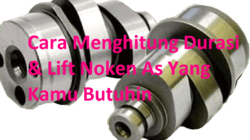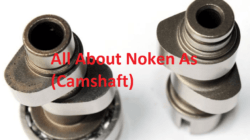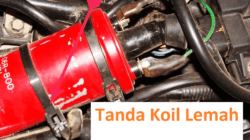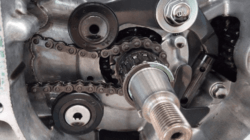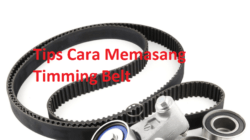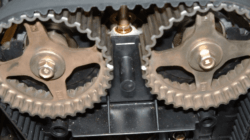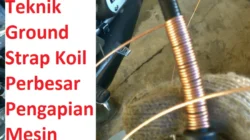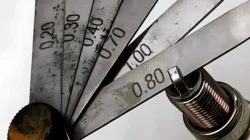Malesbaca.com – A humming or rumbling noise coming from your car’s differential may be caused by worn-out components or degraded oil. Discover how to fix a noisy differential and keep it running smoothly without annoying sounds.
A differential that emits a humming or rumbling noise usually indicates internal problems. These sounds often appear when driving at high speeds or on varied terrain. Ignoring the issue can lead to further damage and result in more expensive repairs down the road.
That’s why it’s essential to check and fix the problem as soon as possible. This article explains how to fix a noisy differential, including direct repair methods and temporary solutions.
Daftar Isi:
Causes of a Humming or Rumbling Differential
There are generally two types of noises that occur when the differential is faulty—humming and rumbling. The causes may vary, including the following:
1. Worn Differential Ring Gears
If you hear a humming noise, it is most likely caused by worn ring gears or looseness in the pinion gear. If left unchecked, this can accelerate wear on other components.
2. Worn Bearings or Broken Gear Teeth
Rumbling noises are typically caused by worn bearings or broken gear teeth. If this is the case, the differential needs to be dismantled and the damaged components replaced to prevent further damage.
How to Fix a Humming or Rumbling Differential

To resolve issues with a noisy differential, here are several steps you can take:
1. Check the Differential Oil
Start by inspecting the condition of the differential oil. Ensure the oil level is sufficient and that it’s not dirty or dry. Use SAE 140 oil, which is commonly recommended for car differentials. Dirty or low oil can cause excessive friction, resulting in humming or rumbling noises.
2. Open and Inspect the Differential
If the noise persists after changing the oil, some components may be worn or damaged. In this case, dismantling the differential is necessary to check the ring gears, bearings, and adjust the backlash between the Crown Wheel and Pinion gears.
This process should be handled by a professional mechanic, as it requires precision when readjusting the gears to avoid premature wear or gear damage.
3. Use Thicker Differential Oil (Temporary Solution)
If you’re looking for a short-term fix without dismantling the differential, consider replacing the oil with a thicker type. This is sometimes referred to as “tractor oil” or bulk oil, often used in agricultural machinery.
You may also mix grease into the differential oil. This method is often used in cars being sold to temporarily reduce noise. However, keep in mind that this is not a permanent solution and does not truly fix the damaged components.
A noisy differential, whether humming or rumbling, should be inspected promptly to prevent further damage. Routine maintenance like checking differential oil and adjusting component settings is crucial for optimal performance.
If the noise remains after changing the oil, it’s best to dismantle the differential and replace the faulty parts at a trusted repair shop. Don’t rely solely on temporary fixes like using thicker oil, as this only masks the problem without actually solving it.



